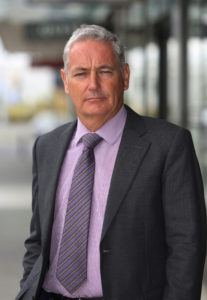
Accommodation providers around east Auckland are up in arms about a proposed targeted accommodation rate by Auckland Council that could see their rates rise by a whopping 150 per cent.
The proposal forms part of Auckland Council’s annual budget for 2017/2018 and will replace $27.8 million of general rates funding spent by council annually on visitor attractions and major events.
All commercial accommodation providers, including hotels, motels and bed and breakfasts, will be required to pay a rate that works out to be approximately four per cent of their revenue, which is expected to increase the cost of a nightly stay by around $6-$10 for a typical hotel when passed down to visitors.
For most local motels, the increase is estimated to reach 200 per cent, according to Howick Ward Councillor Dick Quax, and he’s not happy with what the proposed rate could mean for local providers.
“Our local places are not necessarily filled with tourists; they are business people, and people visiting family or friends. These are the people who already pay taxes, so they would be hit again.
“For many of our small local providers, it could potentially put them out of business. They’re left with three options – charge more, lay people off, or go out of business… [and] they work on a fairly small margin anyway.”
General manager of Waipuna Hotel and Conference Centre, David Comery, expects his rates will triple from the current $200,000 per annum to more than $600,000 if the proposed rate increase goes ahead.
“Waipuna operates in a part of the market that is price-sensitive and particularly in the case of large conferencing, those same clients have options elsewhere in New Zealand.
“The industry at large would not be opposed to contributing directly to the costs associated with attracting visitors to the city, [but] accommodation providers enjoy only 10 per cent of the visitor spend, and yet Auckland Council appears to be seeking full recompense for ATEED’s (Auckland Tourism, Events and Economic Development) operation from that one sector alone.”
Mayor Phil Goff told the Times the additional charge is not expected to be a burden on the accommodation provider, but to hit tourists and visitors (both domestic and international) with the extra cost of funding tourism infrastructure and the work of ATEED.
“The total rates bill for accommodation providers will increase, but the expectation is that they will pass on the targeted rate as a visitor surcharge, as they do in many cities around the world, so their customers would ultimately pay the rate.”
The proposal states other business that benefit such as restaurants, cafes and taxis will not be charged because most of their customers are Auckland residents.
But for some local accommodation providers, Auckland residents make up a significant portion of their revenue.
At Howick Motor Lodge, 60 per cent of guests are Auckland ratepayers.
At Quest Highbrook, around 70 per cent of guests are New Zealand business travellers, and 15 per cent are international business travellers, resulting in 85 per cent of Quest’s total revenue coming from New Zealand business people and ratepayers.
Leisure travellers make up 15 per cent of Quest Highbrook’s guests, and within that 15 per cent, the majority are New Zealand domestic leisure travellers.
Less than five per cent are international tourists.
“The idea of a $10 per night tourist levy could be calculated and passed on to a traveller, but a rate increase cannot… there is no possible financial mechanism for it,” said manager Brendan Kelly.
“A rate based increase will merely mean an increase in prices for all guests, put pressure on existing margins and increasing pressure on hotels to pay minimum wage – and Quest Highbrook is not a minimum wage employer.”
Mr Kelly, who has worked in the hotel industry in New Zealand and France for nine years, said Mr Goff has failed to take into account the investment funding and ownership models for hotels.
“This rates proposal is a huge disincentive for investors to develop more or additional hotel accommodation infrastructure, which is desperately needed to support increased tourism projections.
“At a high level, this started and is justified as a tax or levy on “international tourists” whose increasing numbers demand infrastructure investment. Now it has turned into a re-funding fudge exercise to take $30m of ATEED funding out of a rate increase on accommodation providers. In every way [the proposal] is flawed.”
Mr Kelly suggested an alternatively proposed New Zealand-wide tax could be a more palatable option, but should also target inbound international airline seats, or tourism operators such as bungee jump, jet boat and campervan hire operators.
In response to the suggestion, Mr Goff confirmed council is not able to impose an arrival charge on international travellers – only central Government can do that – and reiterated accommodation providers are direct benefactors of work done by ATEED and Regional Facilities Auckland (RFA).
“Activities that benefit the accommodation industry should be paid for by those who directly benefit, not by the general ratepayer,” Mr Goff said.
“I am asking those who directly benefit to pay a slightly bigger share and to facilitate the collecting of the visitor surcharge. That way we share more fairly the burden of funding our growing city and the demand that growing numbers of visitors place on our city infrastructure.”
The 2017/2018 annual budget is open for public consultation until 4pm, March 27.










